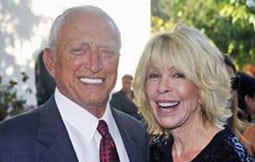I write these words a day before critics and consumers will invoke the word legacy.
I write this missive as a proponent of legacy, as someone who seeks to perpetuate its values and institutionalize its virtues.
I also issue this observation on the eve of the public's anticipation for the ultimate proof that a certain legacy is alive and well; that, all other incremental advances (and some impressive achievements in their own right) notwithstanding, September 9, 2014, will either validate or squander the legacy of one Steven P. Jobs, technology impresario, pop culture revivalist and master of aesthetics; his customary uniform and bespectacled appearance as powerful as any berobed figure of law or religion – I write to you less than 24 hours before the debut of the iPhone 6.
This event will answer the one question every journalist may want to ask: “What would Steve do?”
For, despite the late man's plea that his successor – that the entire community of Apple loyalists – never raise or even acknowledge that query, the question is a legitimate one. It speaks to a legacy that transcends a single person's beliefs about this or that product.
Again, I offer this commentary as a fellow inquirer, albeit about a different individual and a different organization; but a great leader nonetheless.
I, too, may ask, “What would Steve do?” because I admire the legacy he bequeathed to the world. Still, my question is more intimate and immediate.
I register my question as a heartfelt form of petition and as a summons to greatness. I ask, “What would Richard Grossman do?”
That Richard, my Richard, is my recently departed husband: A renowned surgeon, philanthropist, spouse, father, grandfather and patriarch of so many other “Grossman children”; burn survivors, college and medical school graduates, and emissaries on behalf of the principles that define the Dr. Richard Grossman Community Foundation.
So, to segue back for a moment to the stage of the Moscone Center San Francisco, where Tim Cook, the CEO of Apple, will stand before the assembled masses to display holy (until the next annual occasion) tablets and sleek, “pocket bibles” of silicon and glass – to the hosannas and amens that will ensue – I say: “Yes, indeed. Please ask ‘What would Steve do?'”
Readers of this piece will already know the answer to this speculative endeavor.
And, as intriguing as that reply may be, my Richard question addresses a more direct sense of legacy.
As a Board Member of his Foundation, and as an executive who believes this question encapsulates far more than its literal construction, I raise this matter because it is the best way to preserve a legacy.
In fact, failure to ask and answer this question invites a series of more complicated and existential questions about identity, mission, collaboration and survival.
We will know what Steve would do in the same manner by which our ministers – of justice and faith – know what to do, regardless of their differing interpretations of various statutes and injunctions.
We start, as does Richard's Foundation, from first principles. We begin by honoring the courage and integrity of those who precede us.
For example: Future medical discoveries may reduce today's triumphs to quaint theories and opaque glances involving a discipline remade by quantum physics, nanoscience and genomics.
But the moral DNA, the spirit that places Apple at the intersection of technology and the liberal arts, which is also the energy that infuses Richard's organization with life, will outlast any device or fad.
Therein lies the essence of legacy and leadership: It thrives long after the best among us are gone.
It flourishes because of an uncompromising attitude towards excellence and quality.
That is the work of Steve Jobs – and Richard Grossman. They are very much with us.
—
A Board Member of the Dr. Richard Grossman Community Foundation, Elizabeth Rice Grossman retired from a 35-year career on Wall Street, the last eight as a Managing Director of Soros Fund Management in charge of worldwide trading. While living in New York, she served on the Board of the Ronald McDonald House, The Family Academy and was a Trustee of the Public Theater. Upon retirement, she moved home to San Francisco, and became active in her Community. She is a member of the Board of Trustees of the Honolulu Museum of Art and Chairs the Investment Committee. She also serves on the Board of the Hawaii Community Foundation as well as the Hawaiian Human Society.

